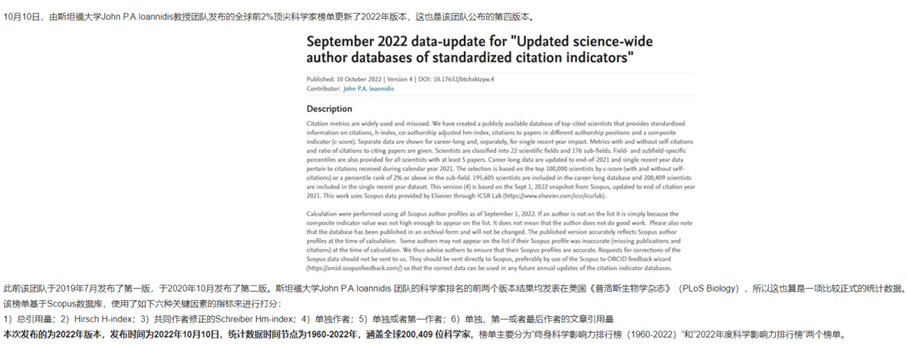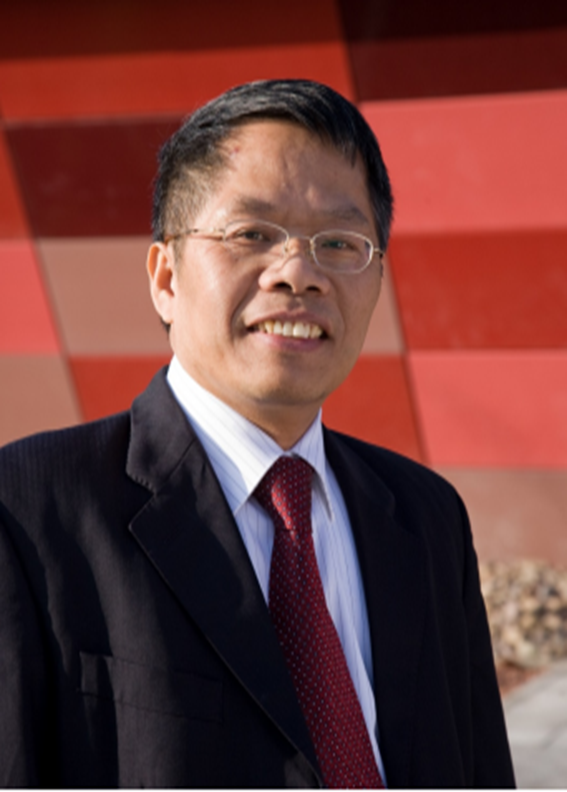Time:2022-10-30 Source: Author: Views:
Prof. Yao Shujie, Dean of Li Anmin Institute of Economic Research of Liaoning University has been listed in the Career-Long Impact List of World’s Top 2% Scientists. In his research field of economics and business, only 36 scholars from higher education institutions across the country (mainland China and Hong Kong) have been admitted in the list. This result highlights the high academic impact and competitiveness of the “Double First-Class” disciplines of Liaoning University. At the same time, Prof. Pan Yishan and Prof. Zhang Lei have been selected in the list with the research fields of engineering and chemistry respectively.





Prof. Yao Shujie, PhD. in economics, is a Distinguished Professor of National Talent Program. He is Dean of Li Anmin Institute of Economic Research, doctoral supervisor, Secretary-General of Urbanization and Regional Innovation Pole Development Research Center, Distinguished Professor of Chongqing University, Chongqing Ying Cai Excellent Scientist, Chairman of Steering Committee of Chongqing Higher Education Economics Education at Undergraduate Level, founding dean of School of Contemporary Chinese Studies and Confucius Institute at University of Nottingham, Editor of many CSSCI/SSCI journals and economic advisor to the World Bank, United Nations and other international organizations. His researches mainly focus on development economics and agricultural economic policy. He has published nearly 200 papers in dozens of well-known academic journals such as Journal of Political Economy and Economic Research (14 papers) at home and abroad, and has published 10 monographs and edited books in both Chinese and English. His papers have been cited 7,041 times by Google Scholars, and he has 46 H-index papers. He presided over one major project of the National Social Science Foundation of China, one general project of the National Natural Science Foundation of China, and more than 10 provincial and ministerial projects. He also won Zhang Peigang Outstanding Achievement Award in Development Economics, and over 10 excellent achievement awards at the provincial and ministerial levels. He has been awarded the Elsevier Global Highly Cited Scholar from 2020 to 2021.

“World’s Top 2% Scientists” selects top 2% scientists from approximately seven million scientists worldwide. The list includes two separate data for career-long impact and single-year impact. Scientists are classified into 22 scientific fields and 176 sub-fields. The list, compiled by the team of Prof. John P.A. Ioannidis of Stanford University, was first released on Mendeley Data in June, 2019. The list of 2022 is the fourth edition. 200,409 scientists were selected to be included in the database, among which 7795 scientists has been admitted to the Career-Long Impact list of World’s Top 2% Scientists. The list uses data provided by Elsevier Scopus, is based on standardized information on citations, h-index, co-authorship adjusted hm-index, citations to papers in different authorship positions and a composite indicator (c-score). All indicators are used to make comprehensive evaluations on scientists’ research status and long-term research performance, through which scientists’ academic impact are reflected in a true and objective way. Being admitted to the list not only shows that these scientists are at the forefront of their research fields and that their research achievements have been widely recognized, but it also demonstrates the strong scientific research capability of the institutions where they work.
Chongshan Campus: No. 66, Chongshan Middle Road, Huanggu District, Shenyang Postcode: 110036
Puhe Campus: No. 58, Daoyi South Street, Shenbei New District, Shenyang Postcode: 110136
Wusheng Campus: No. 38 Youth Street, Baita District, Liaoyang City Zip code: 111000
Copyright by Liaoning University, Shenyang, China
